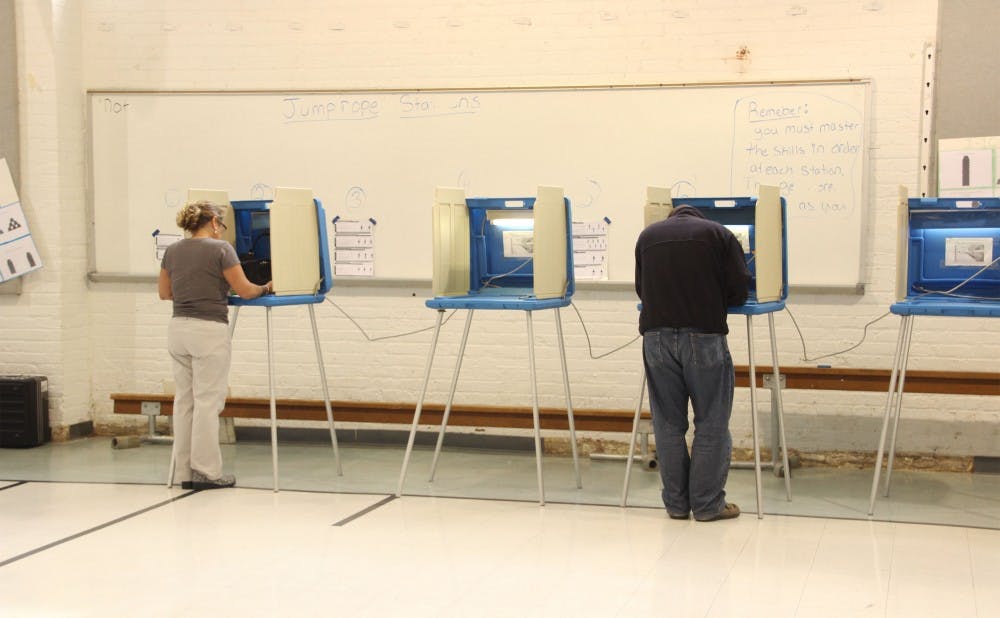Duke’s campus will host an early voting site in the Freeman Center for Jewish Life March 3 through March 12.
Early voting was held in the West Union during the 2008 and 2012 elections, but because of construction, it will not be able to host the voting this year. Hours will vary throughout the week. Michael Schoenfeld, vice president for public affairs and government relations, said that administrators and students worked diligently with the Durham County Board of Elections in order to find another suitable place on campus.
“We believe that voting is a very important part of citizenship and a student’s education,” Schoenfeld said. “We worked very hard to facilitate voting and make it as easy as possible for students to exercise this right.”
More than 9,000 people voted in both the 2008 and 2012 general elections at Duke.
Kerry Haynie, associate professor of political science and director of the Center for the Study of Race, Ethnicity and Gender in the Social Sciences, wrote in an email that young voters have always played a large role in North Carolina politics—including swinging the state for President Barack Obama in 2008—and pointed out the possibility that legislators are making it harder for students to vote.
“I think the health of our democracy rests on our ability to have more rather than fewer people participating in politics and public affairs,” Haynie wrote. “Younger voters are a demographic group that tends to participate at lower rates than others. Voting sites on college campuses like our own are an easy and effective means of achieving this greater participation.”
Freshman student activist Cecelia Mizelle similarly noted in an email the state legislation’s negative effect on student suffrage and pointed out the ability for on-campus voting to counteract this. She cited North Carolina’s new photo ID requirement and the elimination of both same-day registration and pre-registration for teenagers turning 18 among other regulations that make voting more difficult for college students.
“At Duke, there are a million causes competing for our attention constantly,” Mizelle wrote. “I do believe the vast majority of students care about elections, but sometimes I see that enthusiasm crushed under the combined weight of looming midterms and unfamiliar bureaucratic requirements.”
She noted that North Carolina’s state and local primaries will occur March 15—the same day as presidential primaries—which is during Duke’s spring break.
Mizelle worked closely with freshman Jackson Dellinger, a Duke Student Government senator for Durham and Regional Affairs. Together, along with other political organizations on campus, the two held weekly meetings to coordinate efforts to advocate for the site. Dellinger noted that convenience is often a major factor in student’s decision whether to vote or not.
“I’ve spent more time making voting easy for students than making it interesting,” Dellinger wrote in an email. “The on campus early voting site is one part of that; radical voter registration another.”
Dellinger also noted the possibility of administrative initiatives to incorporate voter registration and a basic overview of N.C. politics into the new student checklist during Orientation Week.
“At the very least, every student who comes to Duke will know how they can vote and why they ought to,” Dellinger wrote. “Given how convoluted N.C. voting laws are, this is a huge step forward for having a politically active student body.”
North Carolina has semi-open primaries, meaning that unaffiliated voters can vote in primaries of either party.
Get The Chronicle straight to your inbox
Signup for our weekly newsletter. Cancel at any time.

